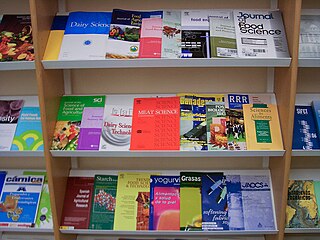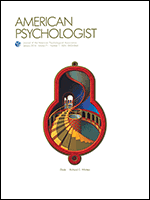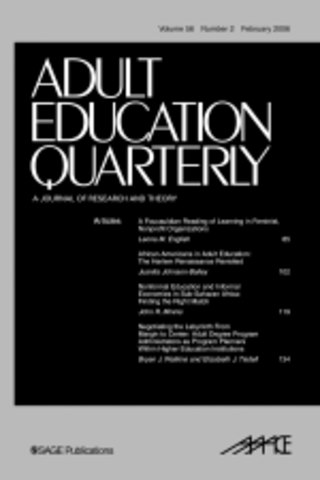
A community college is a type of educational institution. The term can have different meanings in different countries: many community colleges have an "open enrollment" for students who have graduated from high school. The term usually refers to a higher educational institution that provides workforce education and college transfer academic programs. Some institutions maintain athletic teams and dormitories similar to their university counterparts.

Peer review is the evaluation of work by one or more people with similar competencies as the producers of the work. It functions as a form of self-regulation by qualified members of a profession within the relevant field. Peer review methods are used to maintain quality standards, improve performance, and provide credibility. In academia, scholarly peer review is often used to determine an academic paper's suitability for publication. Peer review can be categorized by the type of activity and by the field or profession in which the activity occurs, e.g., medical peer review. It can also be used as a teaching tool to help students improve writing assignments.

An academic journal or scholarly journal is a periodical publication in which scholarship relating to a particular academic discipline is published. Academic journals serve as permanent and transparent forums for the presentation, scrutiny, and discussion of research. They nearly universally require peer review or other scrutiny from contemporaries competent and established in their respective fields. Content typically takes the form of articles presenting original research, review articles, or book reviews. The purpose of an academic journal, according to Henry Oldenburg, is to give researchers a venue to "impart their knowledge to one another, and contribute what they can to the Grand design of improving natural knowledge, and perfecting all Philosophical Arts, and Sciences."

The Journal of the American Medical Association (JAMA) is a peer-reviewed medical journal published 48 times a year by the American Medical Association. It publishes original research, reviews, and editorials covering all aspects of biomedicine. The journal was established in 1883 with Nathan Smith Davis as the founding editor. Kirsten Bibbins-Domingo of the University of California San Francisco became the journal editor-in-chief on July 1, 2022, succeeding Howard Bauchner of Boston University.
Continuing education, also known as lifelong education or lifelong learning is an all-encompassing term within a broad list of post-secondary learning activities and programs. The term is used mainly in the United States and Canada.
This is an index of education articles.
Continuing medical education (CME) is continuing education (CE) that helps those in the medical field maintain competence and learn about new and developing areas of their field. These activities may take place as live events, written publications, online programs, audio, video, or other electronic media. Content for these programs is developed, reviewed, and delivered by faculty who are experts in their individual clinical areas. Similar to the process used in academic journals, any potentially conflicting financial relationships for faculty members must be both disclosed and resolved in a meaningful way. However, critics complain that drug and device manufacturers often use their financial sponsorship to bias CMEs towards marketing their own products.

The American Society for Engineering Education (ASEE) is a non-profit member association, founded in 1893, dedicated to promoting and improving engineering and engineering technology education. The purpose of ASEE is the advancement of education in all of its functions which pertain to engineering and allied branches of science and technology, including the processes of teaching and learning, counseling, research, extension services and public relations. ASEE administers the engineering technology honor society Tau Alpha Pi.

American Psychologist is a peer-reviewed academic journal published by the American Psychological Association. The journal publishes articles of broad interest to psychologists, including empirical reports and scholarly reviews covering science, practice, education, and policy, and occasionally publishes special issues on relevant topics in the field of psychology. The editor-in-chief is Harris Cooper.
Brian James MacWhinney is a Professor of Psychology and Modern Languages at Carnegie Mellon University. He specializes in first and second language acquisition, psycholinguistics, and the neurological bases of language, and he has written and edited several books and over 100 peer-reviewed articles and book chapters on these subjects. MacWhinney is best known for his competition model of language acquisition and for creating the CHILDES and TalkBank corpora. He has also helped to develop a stream of pioneering software programs for creating and running psychological experiments, including PsyScope, an experimental control system for the Macintosh; E-Prime, an experimental control system for the Microsoft Windows platform; and System for Teaching Experimental Psychology (STEP), a database of scripts for facilitating and improving psychological and linguistic research.
Peer mentoring is a form of mentorship that usually takes place between a person who has lived through a specific experience and a person who is new to that experience. An example would be an experienced student being a peer mentor to a new student, the peer mentee, in a particular subject, or in a new school. Peer mentors are also used for health and lifestyle changes. For example, clients, or patients, with support from peers, may have one-on-one sessions that meet regularly to help them recover or rehabilitate. Peer mentoring provides individuals who have had a specific life experience the chance to learn from those who have recovered, or rehabilitated, following such an experience. Peer mentors provide education, recreation and support opportunities to individuals. The peer mentor may challenge the mentee with new ideas, and encourage the mentee to move beyond the things that are most comfortable. Most peer mentors are picked for their sensibility, confidence, social skills and reliability.
The American Nurses Credentialing Center (ANCC), a subsidiary of the American Nurses Association (ANA), is a certification body for nursing board certification and the largest certification body for advanced practice registered nurses in the United States, as of 2011 certifying over 75,000 APRNs, including nurse practitioners and clinical nurse specialists.
Sharan B. Merriam is professor of adult education at the University of Georgia. Her focus has been researching and writing about adult learning and the foundations of adult education. She has won the Cyril O. Houle Award for Outstanding Literature in Adult Education for three of her books. In 1998 she was a senior Fulbright scholar to Malaysia.
Peter Mayo is a professor, speaker, editor, writer, and former head of the Department of Arts, Open Communities and Adult Education at the University of Malta, in Malta. He is responsible for the UNESCO Chair in Global Adult Education at the same university. He formerly served as the university's head of the Department of Education Studies from 2008 to 2012. Mayo was a member of the Collegio Docenti for the doctoral research programme in Educational Sciences and Continuing Education at the Università degli Studi di Verona. He teaches in the areas of sociology of education and adult continuing education, as well as in comparative and international education and sociology in general. He was previously employed as a school teacher and later as Officer in Charge of Adult Education in the then Department of Education, Ministry of Education, Malta. Mayo has held visiting professorial appointments at multiple universities and was a Visiting Professorial Fellow at the Institute of Education, University College London during 2014. He was previously a member of the Collegio Docenti for the international doctorate in intercultural sociology and education at the University of Messina and was the President of the Mediterranean Society of Comparative Education (MESCE) from 2008 to 2010. He was visiting professor at the Institute of Education, University College London
Patricia Irene Hogan is a Professor of Management of Health & Fitness in the School of Health and Human Performance at Northern Michigan University in Marquette, Michigan, USA. Dr. Hogan publishes and presents in the areas of developing Professional Intellect in university students, Inquiry-Based and Problem-Based Learning, professional ethics, prosumerism, Social Media applications in education mission-central learning, and in Social Media for Sport and Fitness Business. Her educational scholarly interests involve experimenting with promoting a connectivist approach to enhance learning for relevant literacies and skill-sets in her classes and to teaching for integrative and abductive reasoning and design thinking. She also engages Project Based Learning in her classes. In the 2014-15 academic year she was on sabbatical working with SBRnet data and her colleague, James Santomier, to publish and present on the use of social media and mobile media in sport/fitness.
The Journal of Curriculum and Instruction is a biannual peer-reviewed open-access academic journal. It publishes articles about research, practice, and issues relevant to teaching and learning in the pre-kindergarten to grade 12 environment. The journal is published by the College of Education, East Carolina University. The founding editors of the journal include Katherine O'Connor, Terry Atkinson, Sue Steinweg, Elizabeth Swaggerty, William Grobe, and Guili Zhang. The editor-in-chief is Diane Kester. It has received the 2010 Edward C. Pomeroy Award from the American Association of Colleges for Teacher Education for outstanding contributions to teacher education.
The European Distance and E-Learning Network (EDEN), originally named the European Distance Education Network - established in 1991, is an international educational association open to institutions and individuals dealing with e-learning, open education, and distance education. EDEN is a not-for-profit organisation, registered as a limited company under English law.

Adult Education Quarterly is a quarterly peer-reviewed academic journal covering the field of education. It was established in 1950 and is published by SAGE Publications on behalf of the American Association of Adult and Continuing Education. As of 2019, the editors-in-chief have been Ellen Boeren, Kevin M. Roessger, and Elizabeth A. Roumell.

Active Learning in Higher Education is a peer-reviewed academic journal that publishes papers three times a year in the field of Education. The journal's editor is Virginia Clinton-Lisell. It has been in publication since 2000 and is currently published by SAGE Publications in association with Institute for Learning and Teaching in Higher Education. Its 2-year impact factor is 4.765.

Predatory publishing, also write-only publishing or deceptive publishing, is an exploitative academic publishing business model that involves charging publication fees to authors without checking articles for quality and legitimacy, and without providing editorial and publishing services that legitimate academic journals provide, whether open access or not. The phenomenon of "open access predatory publishers" was first noticed by Jeffrey Beall, when he described "publishers that are ready to publish any article for payment". However, criticisms about the label "predatory" have been raised. A lengthy review of the controversy started by Beall appears in The Journal of Academic Librarianship.









